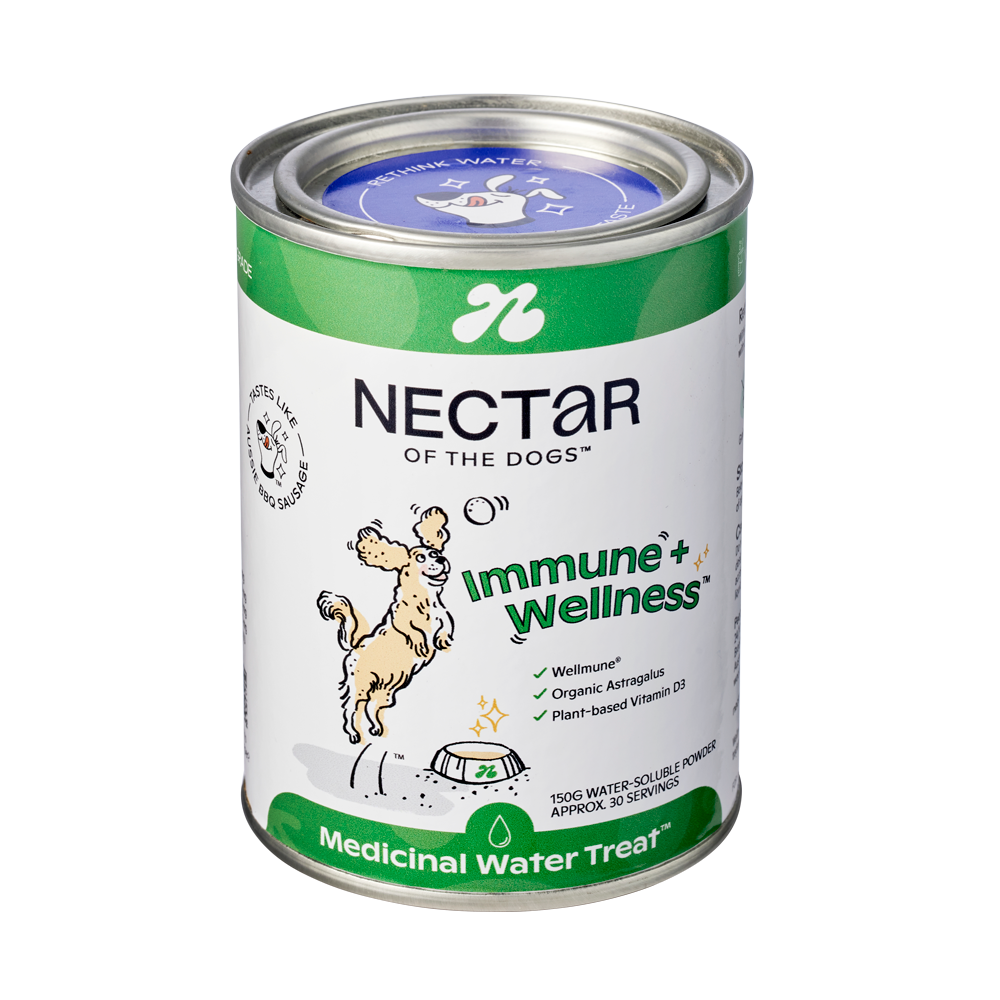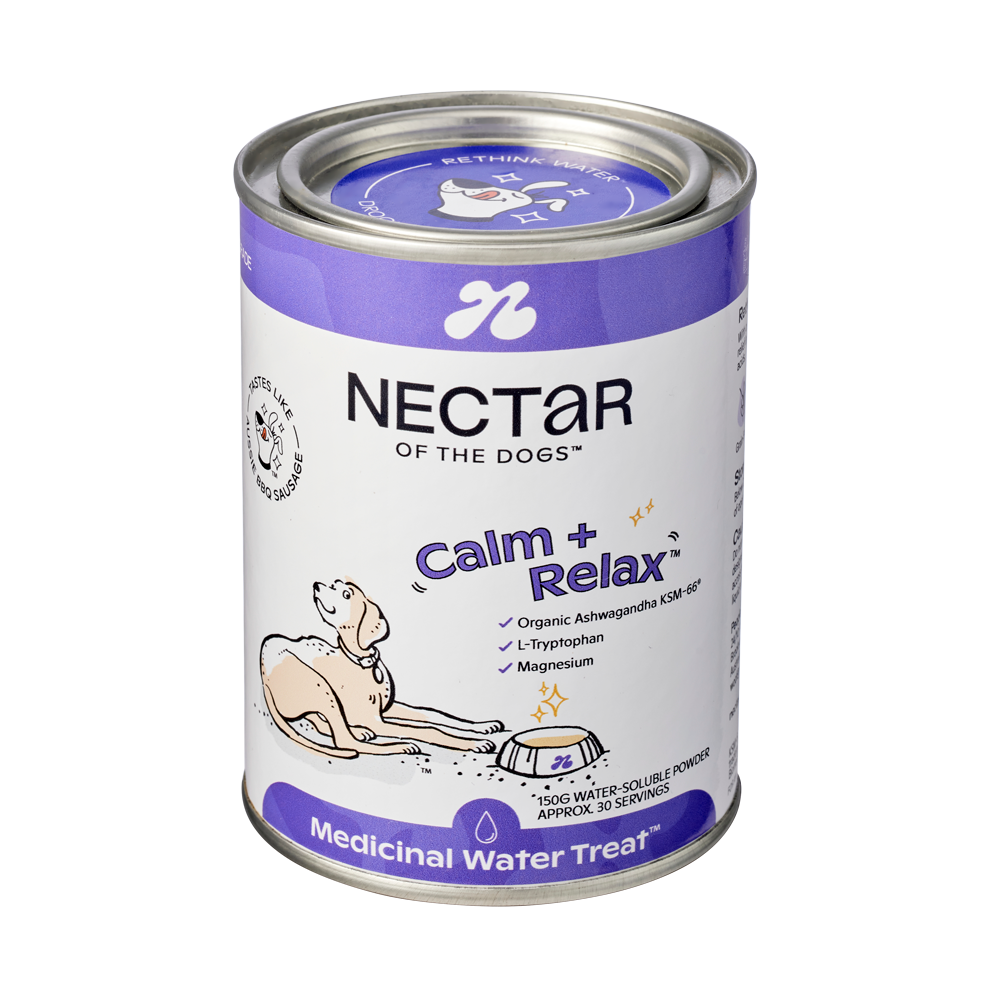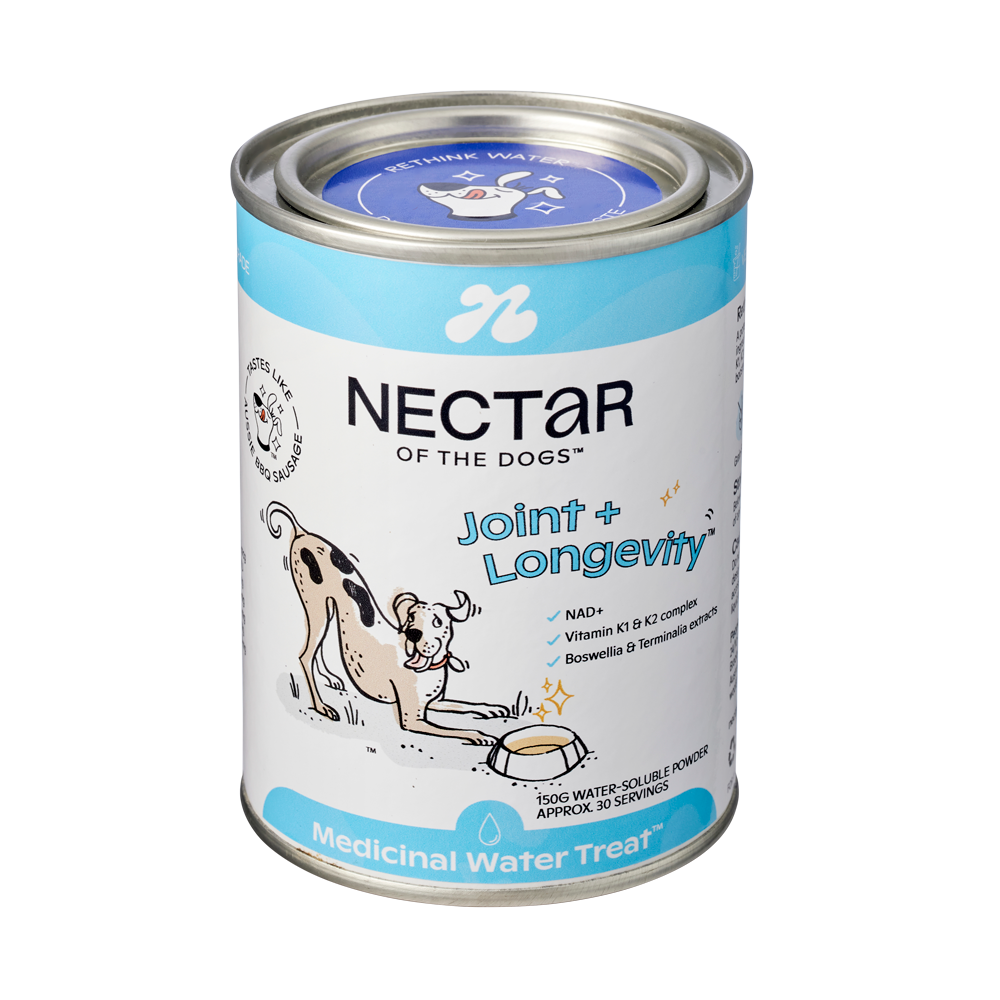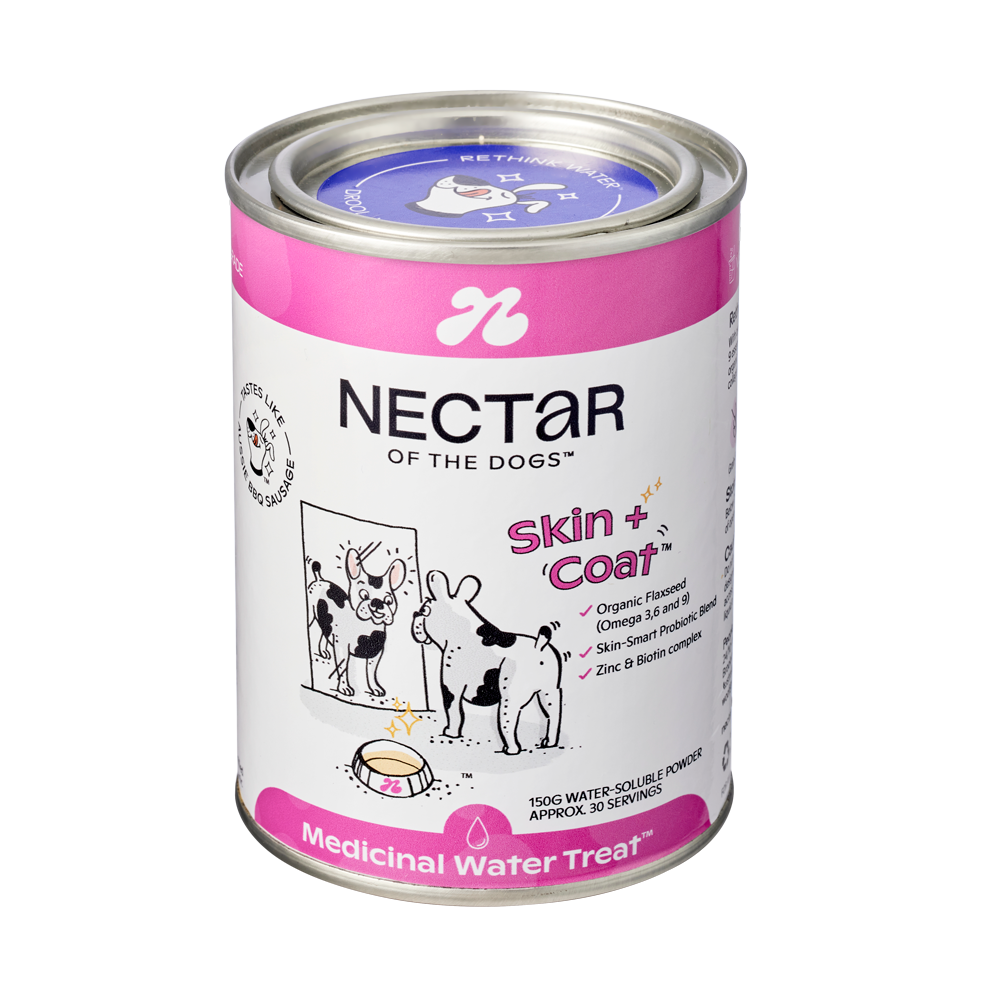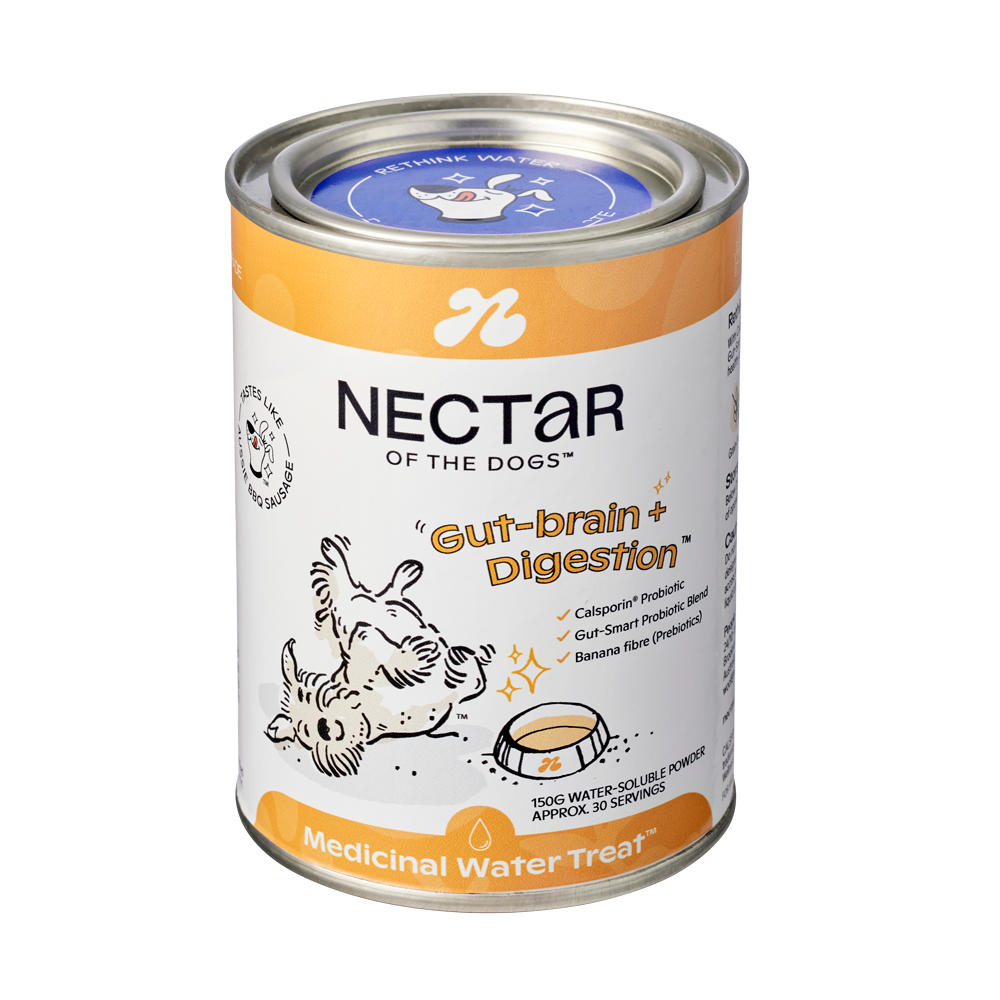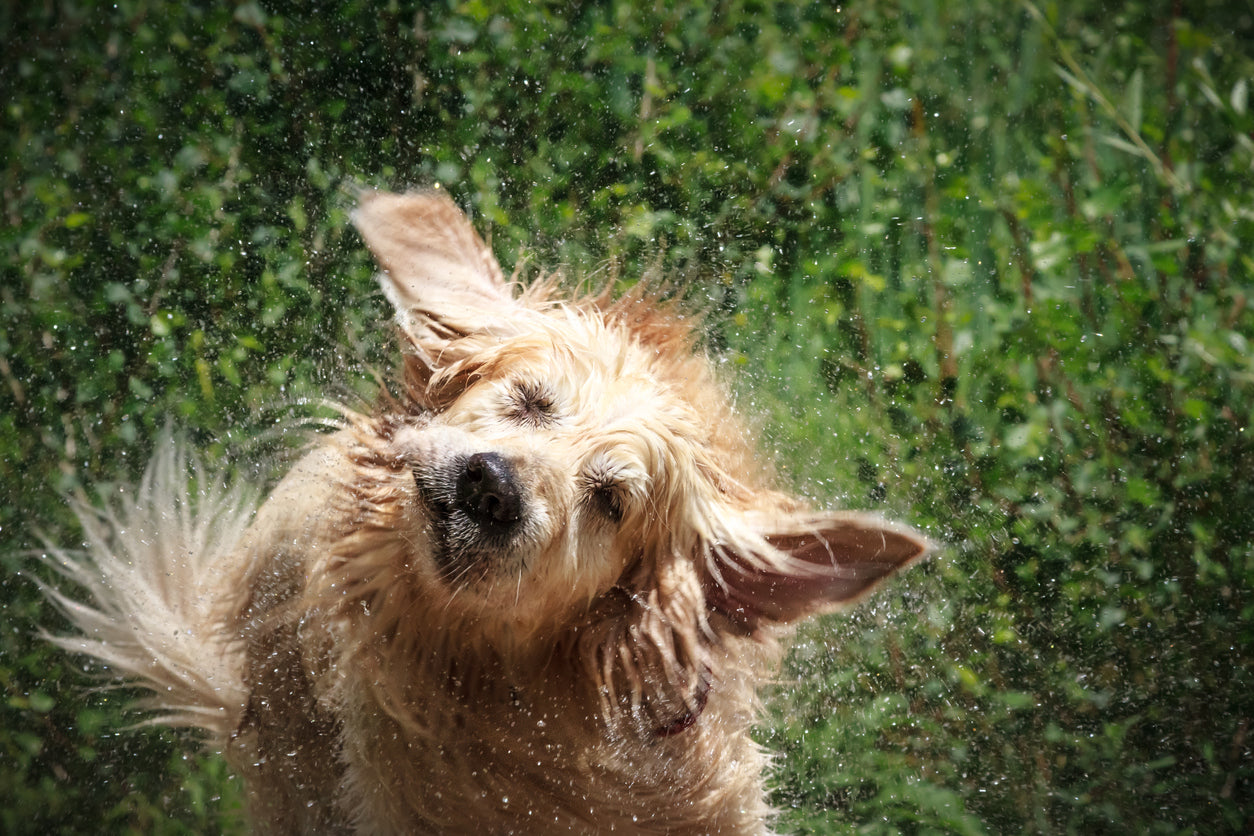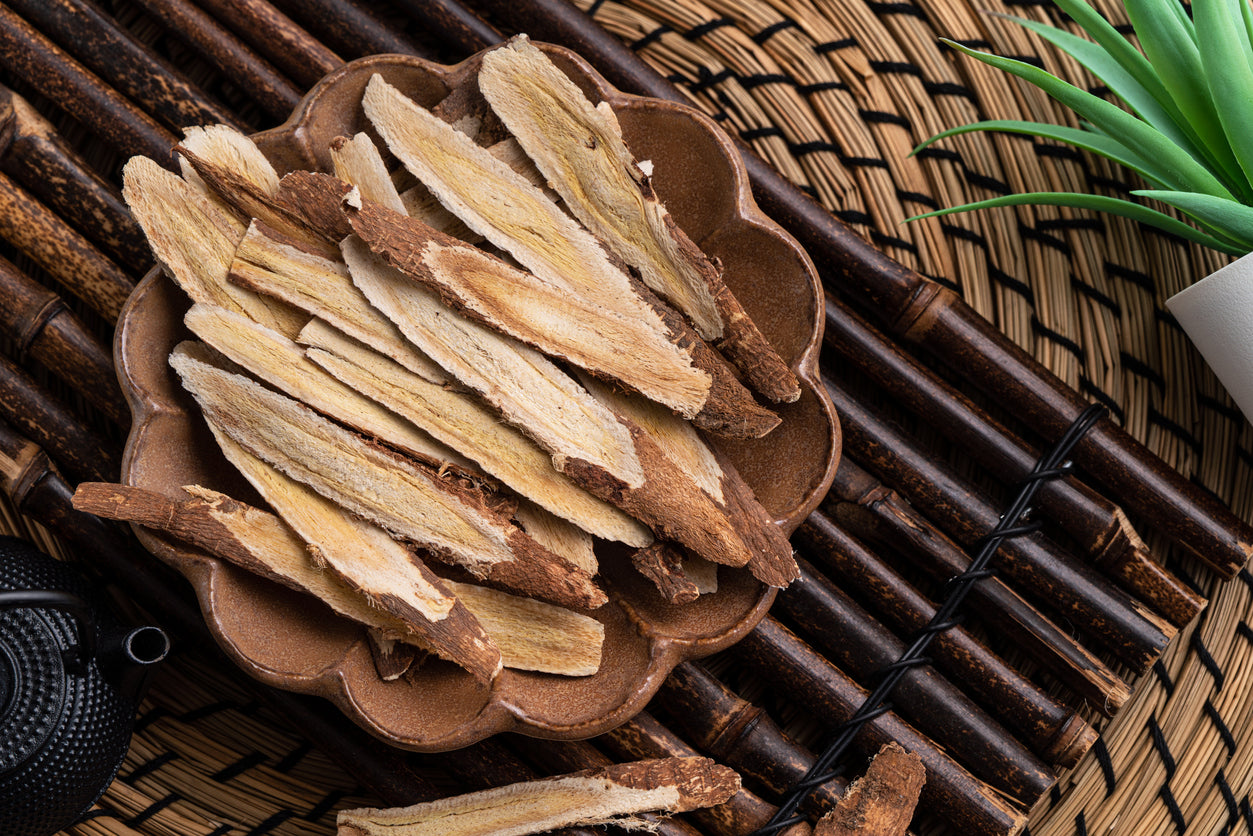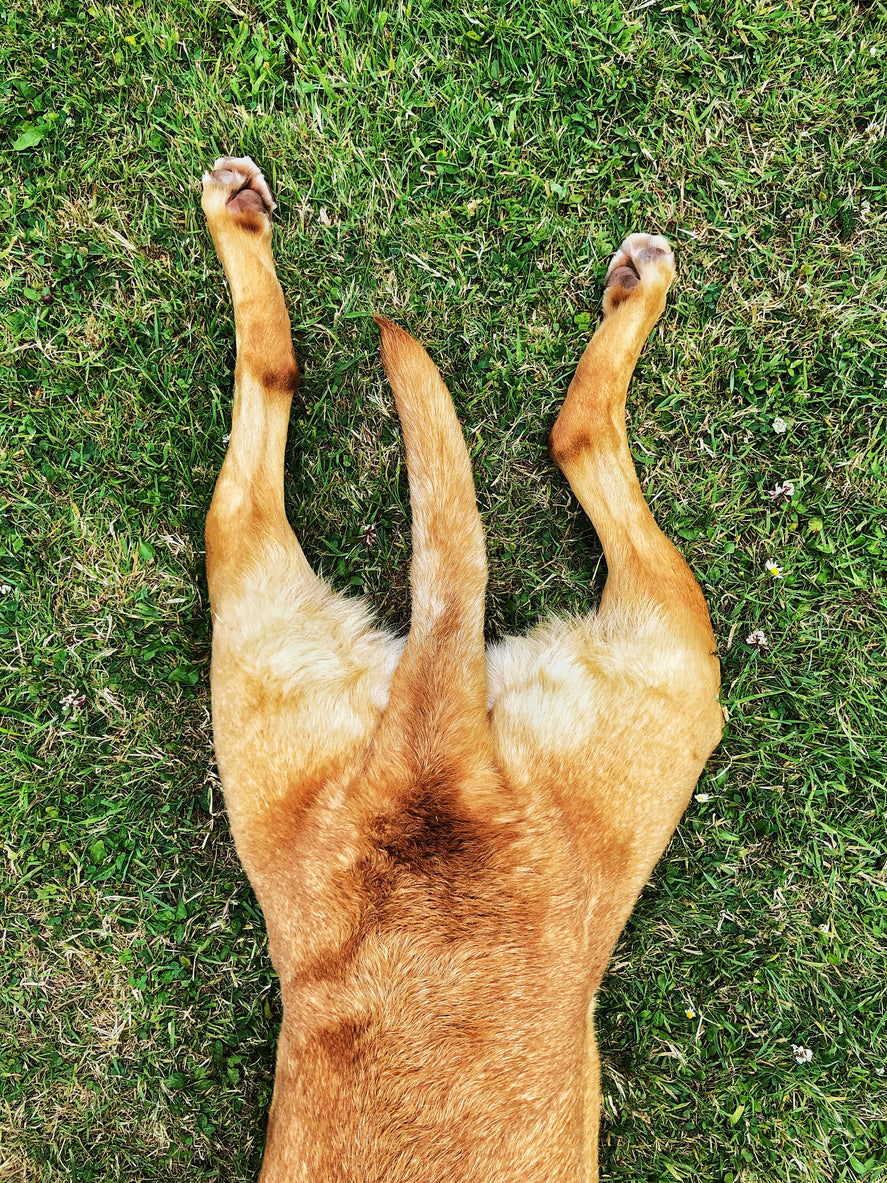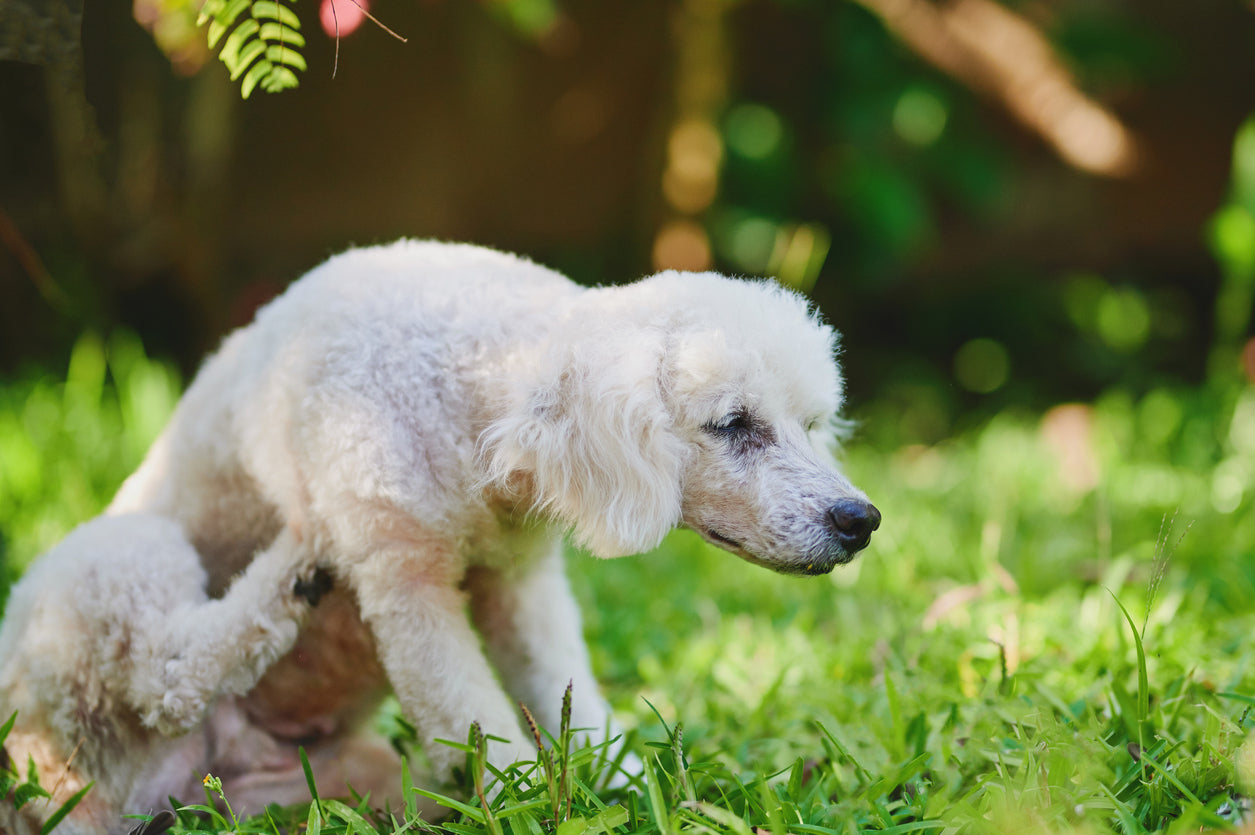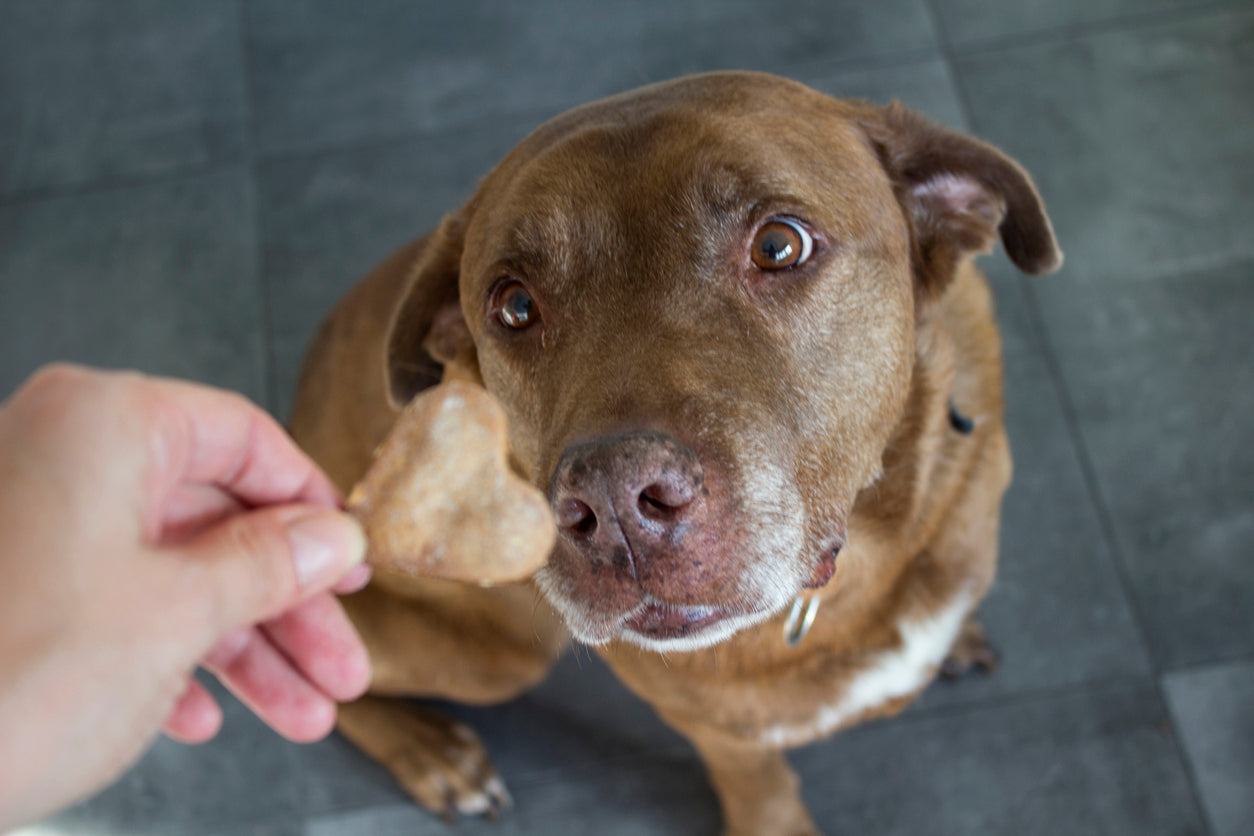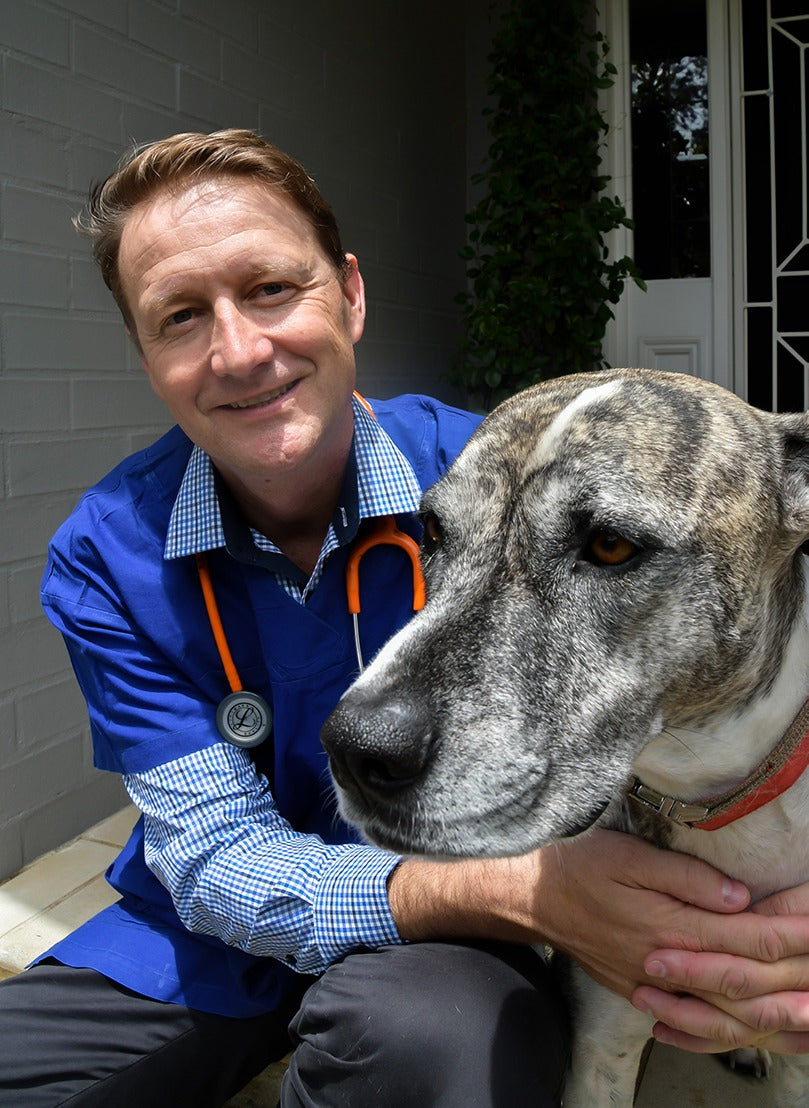Good gut health for dogs: How can I improve my dog’s gut?
Good gut health for dogs
As dog owners, our pup's health is our top priority.
But did you know that a healthy gut is one of the key to a healthy pup?
Alongside digestion, the gut regulates many other aspects of your dog’s health, including immunity and the absorption of nutrients.
We all want our dogs to be their best selves, so we're going to go over the ways you can improve your dog’s gut health.

Gut health and the dog microbiome
The gut plays an important role in digestion, but did you know that around 70% of the immune system is located in the gut?
In fact, within our gut lies our ‘gut microbiome’, which is the home to hundreds of bacteria and microorganisms that live in the gastrointestinal tract.
The microbiome plays an important role when it comes to our pup’s overall wellbeing. Whilst there’s still much to learn about the science of the microbiome, the keys to maintaining a healthy gut include:
- A healthy diet
- Sleep
- Exercise
- Minimised stress
Why does stress impact our gut health?
The gut and the brain are very interconnected. In fact, many studies have revealed that we actually have a ‘second brain’ that lives within our gut, otherwise known as the enteric nervous system. Without getting too technical, our mental state and internal state often reflect one another. This is why your stomach hurts when you’re anxious, or why you feel butterflies when you’re excited.
Our pups also have this gut brain connection, so maintaining a healthy gut is important for your dog’s cognitive functioning.
What happens when our gut is imbalanced?
When the bacteria in the gut becomes imbalanced (otherwise known as dysbiosis), our pups can face a range of issues, including:
- Increased stress
- Unhealthy weight gain
- Illness
- Digestive issues
- Weakened immune system
- Bowel inflammation
So, it’s important to maintain your dog's gut health to protect them from illness and imbalance.
Tips to improve your dog’s gut health
Ensure they have the right nutrition
A healthy diet that's full of nutrient-dense animal proteins are ideal for a healthy dog's gut.
While humans need carbohydrates to survive, dogs don't. They can live off of proteins and fats from animal sources, and their digestive system thrives on a high protein, high fat diet.
Consider supplements
On top of their healthy diet, you may want to think about nutrients that can support a holistic diet.
The goal of good nutrition should be to:
- Protect your dog’s gut microbiome
- Maintain your pup’s skin and coat
- Provide your dog with many essential vitamins and
 minerals
minerals - Strengthen your puppy's immune system
- Give them biologically appropriate energy sources that keep them happy and healthy
Always consult your vet to be sure that your dog's diet is safe, complete and balanced.
Think about the ingredients you use
It's no secret that lots of dog food is full of filler ingredients and low quality proteins. But for a healthy pup it's important to feed them a diet filled with high quality ingredients.
Whilst it may be tempting to buy any dog food that’s easy to find, this isn’t always the best for your pups gut.
You should strive to put effort into your dog’s diet. When buying premade food, carefully read through the ingredients, and prioritise those that aid healthy digestion.
Find the food that’s most compatible with your dog’s health. Feeding your dog the best quality food will maintain their gut health, which will maintain other areas of their health in turn.
Foods to stay away from
To ensure your dog is getting the right nutrition, it’s important to know what foods to stay away from.
Limit carbohydrates
Unlike humans, dogs don’t need carbohydrates to function. In fact, most of their nutrition comes from fat and protein. As a result, dogs find it difficult to break down some carbohydrates, so feeding your dog a high-carb diet may be affecting its digestion.
Feeding your dog too many carbs could lead to:
-
Poor digestion
-
Obesity
-
Health issues
-
Cancer
-
Diabetes
So, if you’re finding that your dog’s diet is quite high in carbohydrates, change it up, as this will protect your pup’s gut.
Don’t feed your pup human food
If you’re a dog owner, you’re probably already aware that you shouldn’t be feeding your dog human food.
This is because dogs have different digestive systems to humans. The foods that help us function are oftentimes difficult for our furry friends to digest. In fact, certain foods are actually toxic for dogs (chocolate, garlic, onions, etc.), so it’s important to keep your dog away from the kitchen when you’re cooking for yourself.
Next time your dog begs you to share a bite of your dinner, refrain from feeding your pup anything that it shouldn’t be eating. This will protect your dog from a range of health issues.
Antibiotics
Whilst antibiotics are sometimes necessary, they’re known to kill both the good and bad bacteria in the gut, which can lead to an imbalance.
If your dog needs antibiotics, you should consider adding in a probiotic supplement to help balance your puppy’s gut.
Non steroidals (NSAIDs)
Like antibiotics, NSAIDs can also be the culprits for digestive issues. They can cause many side effects, including:
- Vomiting
- Diarrhoea
- Loss of appetite
So, it’s important to look after your dog and monitor them for symptoms whilst they’re taking NSAIDs.
Make sure your pup is getting enough probiotics and prebiotics
Probiotics and prebiotics are pivotal when it comes to maintaining a healthy gut.
They’re especially important if your dog suffers from digestive issues, such as bloating, cramping, diarrhoea or intolerances.
But, what exactly are prebiotics and probiotics?
Put simply, probiotics are healthy microorganisms that naturally live in your pup's gut. They maintain your pups overall health by:
- Reducing inflammation
- Fighting infection and intolerances
- Increasing immunity
Not all dogs have a balanced number of probiotics in their body, so feeding them a diet rich in probiotics will keep their gut balanced. This includes feeding them fermented foods, such as plain yoghurt and kefir.
Prebiotics, on the other hand, aid the growth and survival of probiotics. In other words, if you want your pup to have a healthy number of probiotics, you need to feed them prebiotics. To maintain a balance of prebiotics, you should be feeding your pup high fibre foods, such as apples and legumes.
Keep your pup’s life as stress-free as possible
As mentioned earlier, our gut is referred to as our “second brain”. Because of this, minimising  stress is important when it comes to protecting the gut.
stress is important when it comes to protecting the gut.
If your pup is stressed, this will bear a lot of impacts on its gut, including:
- An increased release of cortisol, which will affect your pup’s overall health
- Loss of appetite, resulting in a lack of nutrients
- Deregulated mood
So, to maintain a healthy gut, it’s important for your dog to live a stress-free life. Figure out all of your dog’s triggers, and try to keep their living environment as stable as possible.
Reducing your dog’s stress will improve its gut health, so next time your dog seems anxious, find a way to sooth them.
Make sure your pup is exercising outdoors
Exercise is a stress reliever, making it good for the gut.
Your dog should be exercising outdoors every day, whether this be playing, going for walks or running around the park.
According to research, heading outdoors has some surprising health benefits for your pup. Lots of healthy bacteria can be found in air and nature, so taking your dog for a walk will help it soak up microbes that are beneficial to its gut health.
Additionally, dogs can get healthy microbes from their owners, as well as other dogs. Who knew organising a doggy play date would have so many health benefits.
Exercising outdoors is a great way to promote gut and immune health for both you and your pup, so if you can, make daily movement a joint activity.
Nectar’s Gut-Brain + Digestion
You can also feed your dog supplements to sustain their gut health. Nectar’s Gut-Brain + Digestion powder is a human grade dog supplement with a blend of prebiotics, probiotics and postbiotics, which will keep your dog’s gut as healthy as it can be.
This formula contains a Gut-Smart Microbiome Blend to help balance your pup’s gut and protect its immune system.
Gut-Brain + Digestion can be added to your pup’s water or food, and it’s an easy way to maintain your dog's gut health.
Check out Nectar’s natural dog food supplements.

